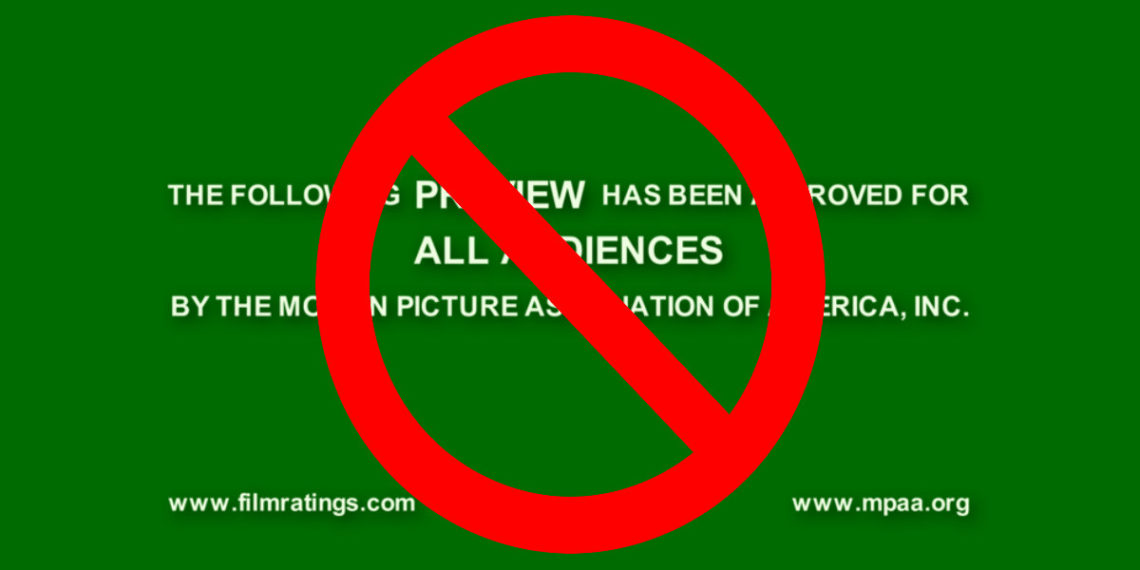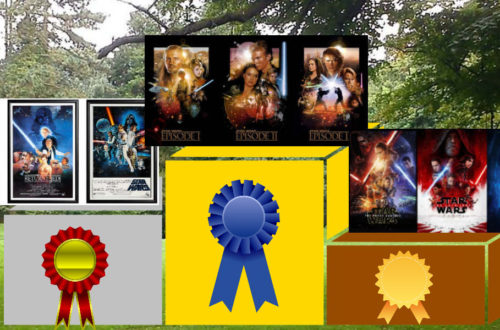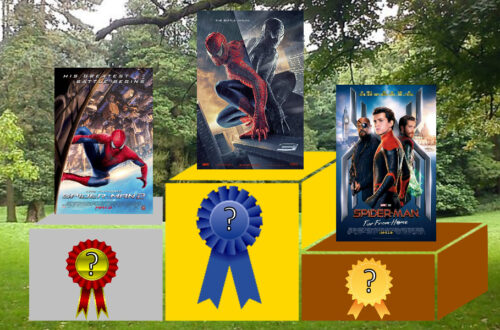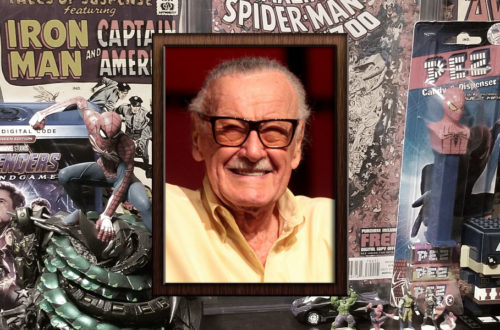
Avoid Watching the Movie Trailer
I used to be the guy that would watch every single movie trailer as they released online.
But after a time, I began to take notice of diminishing returns with each subsequent trailer and TV spot release. I don’t know if it was a recent shift in the way previews were rolled out, or if I simply became more cognizant of the trailers’ revealing contents. The outcome was still the same:
My film-going experience was being stifled by trailers.

This all came to a head with the release of Spider-Man: Homecoming’s second trailer. The video montage, frankly, showed too much in the way of plot details. I know I’m not alone, but I felt like I had seen the entire movie in 2.5 minutes. All three acts of the film were present in chronological form, and made me feel robbed of the movie-going experience that should be embodied by awe, suspense, and anticipation. It was at that moment I made the resolution to do something drastic, something that I have faithfully upheld since seeing that notorious Spider-Man trailer in 2017.
I will never watch anything beyond the initial teaser.
My friends can attest to how stringently I’ve followed this personal rule of mine. Leading up to the release of Avengers: Infinity War, the film’s second trailer preceded many a film. And many a time, I’d leave the theater to go “use the restroom” the moment Alan Silvestri’s iconic theme played. Yes, I invoked some ridicule from my companions. And yes, it turns out the second trailer did not actually show too much in the way of spoilers.

But why take that chance?
Since my resolution to only watch the first teaser, I can say confidently that my theater-attending experience has been made so much sweeter. To be able to walk into a new movie unsullied is a special feeling — one that is easily lost through social media or a spoilery trailer.
It’s a lot harder to stuff the toothpaste back into the tube once it’s out.
“If avoiding spoilers is your goal, then why watch any movie trailer at all?”
It’s a valid question. On a broad scale, I’ve noticed a similar trend among previews. The very first ad for a movie (commonly known as a teaser), is usually very vague in the way of story beats, and is mainly used to generate hype. Suffice to say, I can’t speak for ALL teasers everywhere, as the content therein will depend on the editor, what the movie company chooses to release, etc. However, by simply viewing the first teaser, I’ve found it can actually benefit my perception of the film and how I feel about it.

Your soul is dead.
The main reason for this is because of the aforementioned hype generation. To see my childhood stories and heroes get a proper film adaption is a dream come true, and seeing glimpses of them on the silver screen only increases my excitement. Teasers are generally very good at providing just enough information to leave me wanting more, but not too much to where I can predict the outcome of the story, or worse, plot twists. Along the same lines, I love the collective feeling of anticipation for a movie that I share with others. Seeing the initial teaser gives us all something to talk about while we patiently await the next big budget installment of the franchise.
The contentious 8th film in the Star Wars franchise, The Last Jedi, is a great example to illustrate this point. While I won’t get into my opinions on the plot itself, the first teaser did a remarkably good job of keeping things vague. There were various shots of the film being showcased, but for the most part, these scenes were shown with little context. The contrast between the light and the dark sides of the Force was referenced, but not in a way that gave you clues to the storyline. We witnessed a short vignette of the Millennium Falcon evading Tie Fighters, but were not presented with any reason as to why. Luke Skywalker voiced over a portion of the video footage, but was only shown as a silhouetted figure at the close of the teaser.

The Last Jedi’s teaser did a fine job of giving us enough material to be excited, but not enough to spoil the movie’s content.
Ready Player One is another prime example of this teaser vs. trailer contrast, and why I endorse the former over the latter. The first preview (which originally debuted at San Diego Comic-Con) is, admittedly, a little heavier on the exposition than the teaser shown for The Last Jedi. I would argue that this is necessary for moviegoers who may not be as familiar with the story for Ready Player One, as they might be with Star Wars. But be that as it may, this teaser very much follows the same suit, mostly showing action sequences in a way that is fragmented and in no specific sequence.
It too, succeeds in its mission of generating hype.
But while I am 100% in favor the first preview (teaser), I am very much against viewing the second preview (which are commonly referred to as a movie trailer). One alarming commonality I have seen in trailers is their propensity to show too much of the film, as evidenced by my distaste above for the Spider-Man: Homecoming trailer. This preview, for instance, does a fantastic job (sarcasm) of telling the movie’s full story in truncated fashion. The reveal that rustled my jimmies the most was the sequence of Spidey attempting to prevent a passenger boat from literally splitting into two giant pieces.

The trailer had to reveal Iron Man coming to the rescue, and pushing the ship back together. What was intended to be one of the most suspenseful moments of the film was completely undermined by the trailer. With the knowledge that Tony Stark would be around to avert the crisis, I did not find the scene as intriguing as it could’ve been, had I not been spoiled by what I had seen prior to the release of the full movie.
Granted, this is one of the most egregious examples I can think of in recent years where the trailer spoiled key moments in the film. Not every single movie trailer is as bad as the one from Homecoming, but all still follow the same track record of giving audiences additional information (and many I would argue, too much information).
Going back to the previous example of Ready Player One: the full trailer not only expounds on the voice-over introduction by the protagonist Wade Watts, but also proceeds to show a summary of the film. Instead of random action sequences played in no specific order (as shown in the teaser), the scenes are now played out in a way that makes more sense, corresponding to the exposition being told by Wade. The main antagonist Nolan Sorrento (who was completely absent from the teaser) is shown in full force in the trailer.

There were no “plot twists” or undermining of key sequences in this trailer, but viewers would now know exactly what to expect from Ready Player One.
Similarly, The Last Jedi accomplishes much of the same with its own full trailer release. Rey explains her reasoning for wanting to be mentored in the ways of the Force – very much a core principle of the film overall. This was an element that was not very evident in the initial teaser, which was revealed in full through the trailer. Versus a blink-and-you-miss-it cameo in the teaser, Luke Skywalker is now shown very prominently throughout the trailer as Rey’s mentor, further spoiling core details of the final film.
And while these three movies are but a few examples, I’ve noticed the same thing time and time again for many others:
Trailers detract from my film-going experience.
Okay, I’ll take a deep breath now, step down from the soapbox, and acknowledge a few things.

Money makes movies.
Movies make Matthew happy.
First of all, this is but my own opinion. Some individuals I know prefer to watch multiple movie trailers and TV spots to see if the movie is for them. I get that, and if you are that person, all power to you. Secondly, I understand the marketing aspect of preview releases, as I myself currently work in advertising. Movies need to make money, and multiple trailers are one proven way to help bring in that business. And lastly, I want to reemphasize that not every movie trailer is as horrible as this biased editorial makes them out to be.
But this does open up an interesting question:
Just how much footage is too much footage?
At what point are reveals from a movie trailer, teaser, or preview considered spoilery? I don’t know that there is a clear answer. But I’ve seen enough to know that my overall movie-viewing experience was being dampened by trailers. For every decent trailer, there is going to be a spoilery one like Homecoming’s. And as someone who loves movies, who loves being surprised by them, and who despises spoilers — I refuse to take my chances. I have the movie teaser, and that for me is enough. Any additional footage beyond that is toying with fate.
Thus, if you haphazardly find me leaving to “use the restroom,” chances are that I’m saving myself for the wedding night of the movie premiere.
And let me tell you – it’s well worth the wait.




